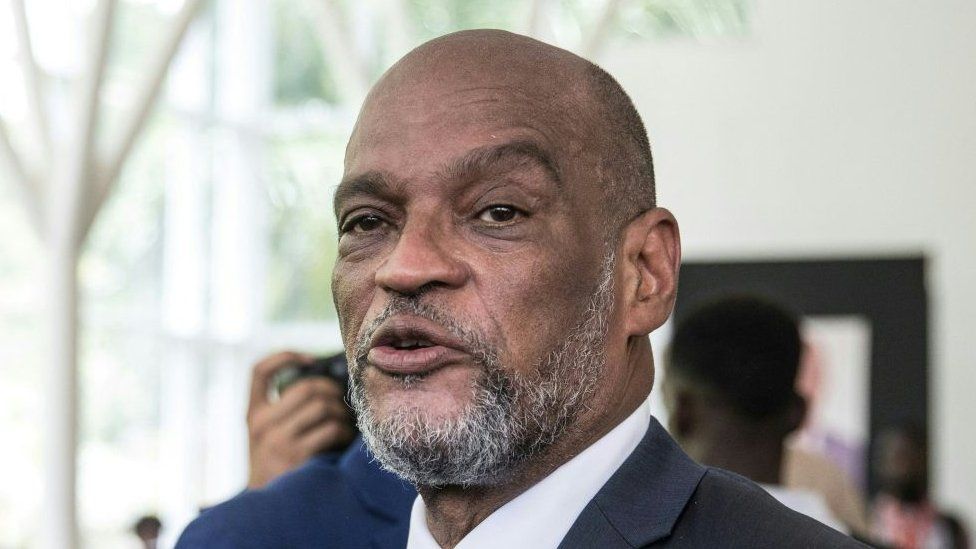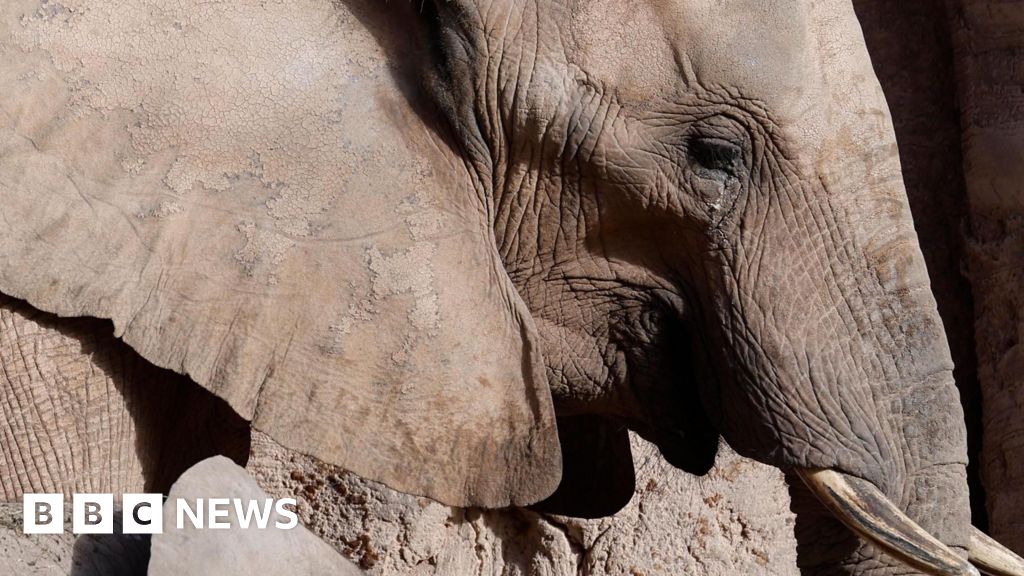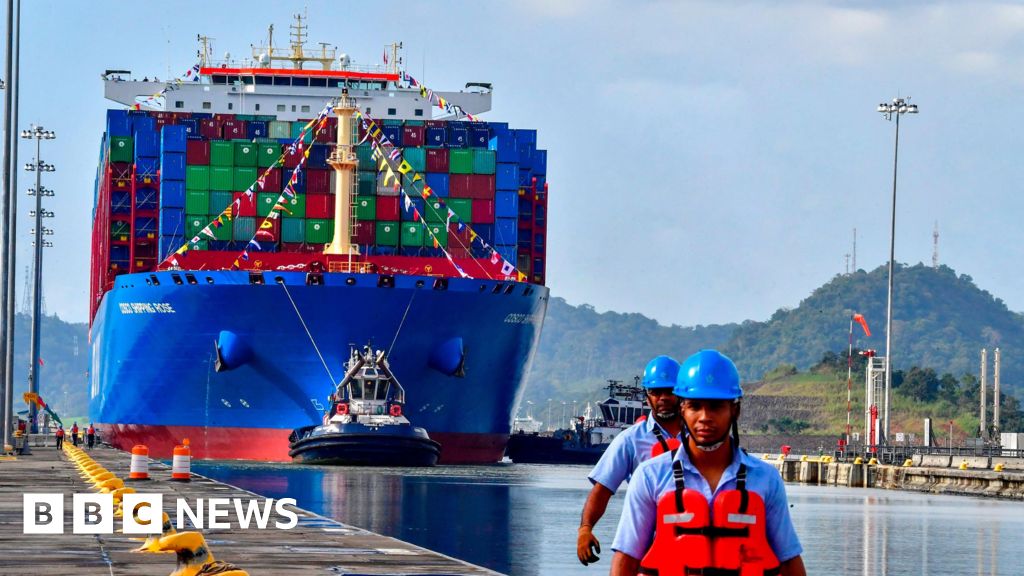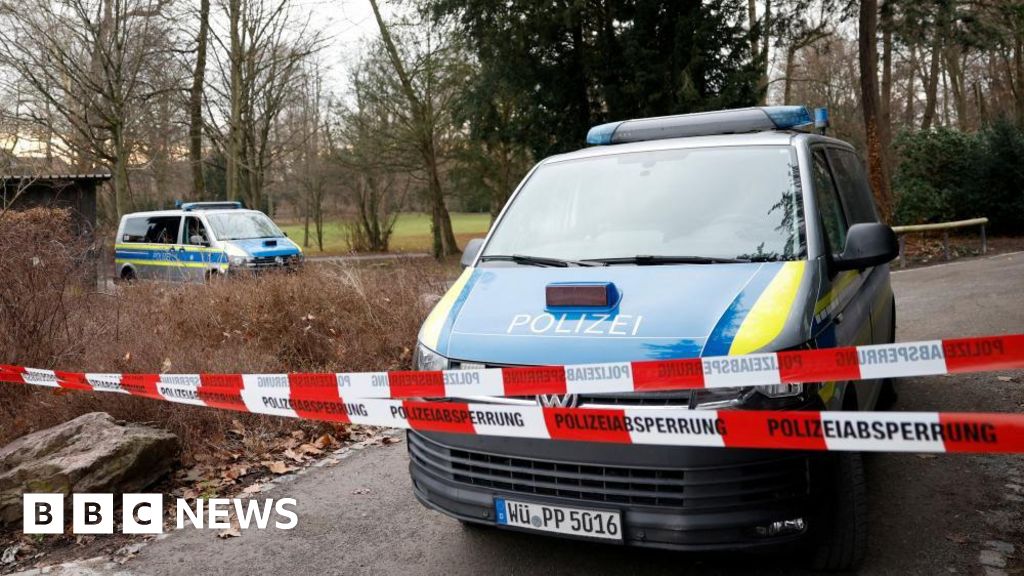ARTICLE AD BOX
 Image source, Getty Images
Image source, Getty Images
Ariel Henry was appointed by President Jovenel Moïse just two days before the latter's murder
By Vanessa Buschschlüter
BBC News Online Latin America and Caribbean editor
When a country's leader resigns, they are often described as "embattled". That description is fitting for Haiti's Ariel Henry.
Mr Henry, who has been the country's prime minister since July 2021, announced on Monday that he would step down as soon as a transitional council was created to replace him.
His resignation has seemed inevitable as a wave of gang violence swept through the capital, making it impossible for him to return from a trip abroad.
But as this lookback at his time in power shows, his troubles predate the gang violence which has ultimately forced him out of power.
The neurosurgeon was named prime minister at the beginning of July 2021 by the then-president, Jovenel Moïse.
Under the 1987 constitution, the president is elected by the people as head of state. They then chose a prime minister, who heads the government.
It was already a turbulent time in Haitian politics when Mr Moïse chose Mr Henry, a soft-spoken former minister, to replace Claude Joseph.
Protesters were demanding that the president resign, arguing that he had overstayed his term, and Mr Moïse often spoke of "dark forces" he said were out to get him.
Then he was brutally murdered by a group of Colombian mercenaries.
In the days which followed the assassination, confusion reigned as to who should lead the country.
Mr Henry had not been sworn in. It took 13 days presided over by Claude Joseph before he was.
It did not get any better. Speaking after the ceremony on 20 July 2021, the new prime minister promised to restore order and new presidential elections "as soon as possible".
That time never came and in his 32 months in power no elections were held.
Mr Henry argued that the security situation had deteriorated so much that free and fair polls were not possible.
During this time, Haitians grew increasingly impatient as rising gang violence mixed with political impotence.
On 7 February of this year, the day that new presidents traditionally take office in Haiti, demonstrators took to the streets of the capital to demand Mr Henry's resignation.
Mr Henry responded by stating he planned to hold elections by August 2025. This only seemed to further infuriated Haitians.
The prospect of another year and a half of Mr Henry in power was seen by some analysts as the straw that broke the camel's back.
Image source, EPA
Image caption,The pressure on Ariel Henry to resign increased in recent weeks amid surging gang violence
Others point to his visit to Kenya at the end of February as the trigger for the latest wave of violence.
Kenya has agreed to lead a multinational police force to be deployed to Haiti to help fight the gangs which are behind the wave of kidnappings and murders which has blighted the capital.
But the plan hit a snag when the Kenyan High Court blocked it.
Mr Henry travelled to Nairobi at the end of February for talks with Kenyan President William Ruto to try to revive the deployment.
Opponents of Mr Henry feared that he could try to use foreign police officers to protect himself and continue to prop up his own power base.
The fact that a wave of co-ordinated gang attacks swept through the capital just as Mr Henry met President Ruto is no coincidence.
The gangs blockaded Toussaint Louverture airport to prevent Mr Henry from returning, and he has been stuck in Puerto Rico ever since.
For 10 days, he did not speak publicly. A smattering of social media posts saw him congratulate a Haitian radio station on its anniversary, and reminding people that the clocks were going forward.
He finally reappeared on Monday to announce he would step down "immediately after the installation of (a transition) council".
While it is still unclear when that will be, it will be hard for Mr Henry's to wield any influence while in effective exile in Puerto Rico.

 10 months ago
43
10 months ago
43








 English (US) ·
English (US) ·